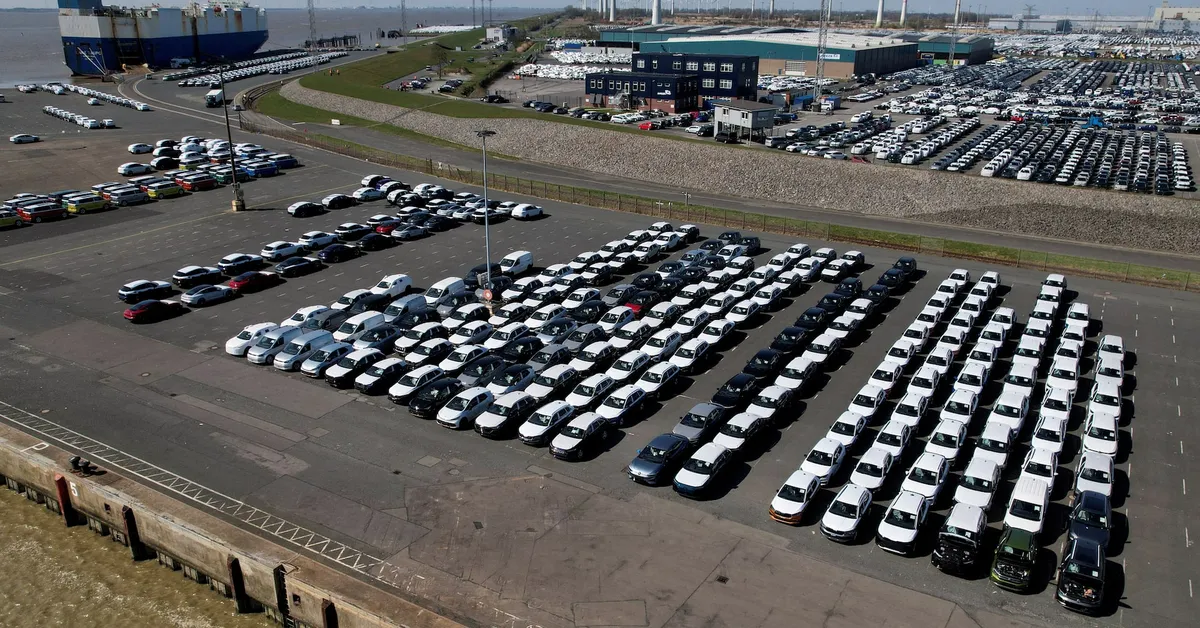
In a significant development for British carmakers, a new quota has been established allowing the export of up to 100,000 cars annually to the United States at a preferential 10% tariff rate. This quota aligns closely with the total number of vehicles that Britain exported to the U.S. last year. In contrast, Mexico and Canada face much higher tariffs of 25%, presenting a favorable opportunity for UK manufacturers.
The recent deal has raised concerns among American automakers, particularly the Detroit Three, represented by the American Automotive Policy Council. They have pointed out that this arrangement makes it cheaper to import a UK vehicle with minimal U.S. content than to import a vehicle from Mexico or Canada that complies with the U.S.-Mexico-Canada Agreement (USMCA) regulations requiring a certain percentage of American parts. This trend could potentially disadvantage American manufacturers, suppliers, and auto workers.
U.S. automakers fear that this preferential treatment for UK vehicles may serve as a precedent for future trade agreements. There is apprehension that similar concessions could be made in negotiations with Asian and European competitors, further marginalizing their position in the market. The White House has yet to respond to inquiries regarding this issue, leaving many in the automotive sector on edge.
Former President Trump had previously attempted to mitigate the impact of auto tariffs by easing restrictions on parts and materials. However, he maintained the 25% tariffs on imported vehicles and extended the duty-free exemption for North American parts that adhere to USMCA rules. Automakers had hoped for a reduction in vehicle tariffs, but the current landscape remains challenging.
Recently, Ford announced a price increase for some of its Mexican-built vehicles due to these tariffs, estimating that the trade war instigated by Trump could add approximately $2.5 billion in costs by 2025. Ford anticipates reducing its exposure to tariffs by about $1 billion. In a similar vein, General Motors (GM) projected that tariffs could cost it between $4 billion and $5 billion, though it expects to offset at least 30% of that amount. Furthermore, Toyota has estimated its tariff costs for April and May to be around $1.2 billion.
This report was compiled by David Shepardson and Kalea Hall, who specialize in the automotive industry, particularly focusing on the Detroit Three automakers. Kalea Hall brings extensive experience from her previous role at The Detroit News, where she covered the auto sector and General Motors for over five years. Her background, rooted in an auto plant town, has provided her with a deep understanding of the industry, enabling her to produce award-winning journalistic content.
With her academic credentials, including a bachelor’s degree from Point Park University and a master’s from Michigan State University, Kalea continues to deliver insightful reporting on the evolving dynamics of the automotive landscape.